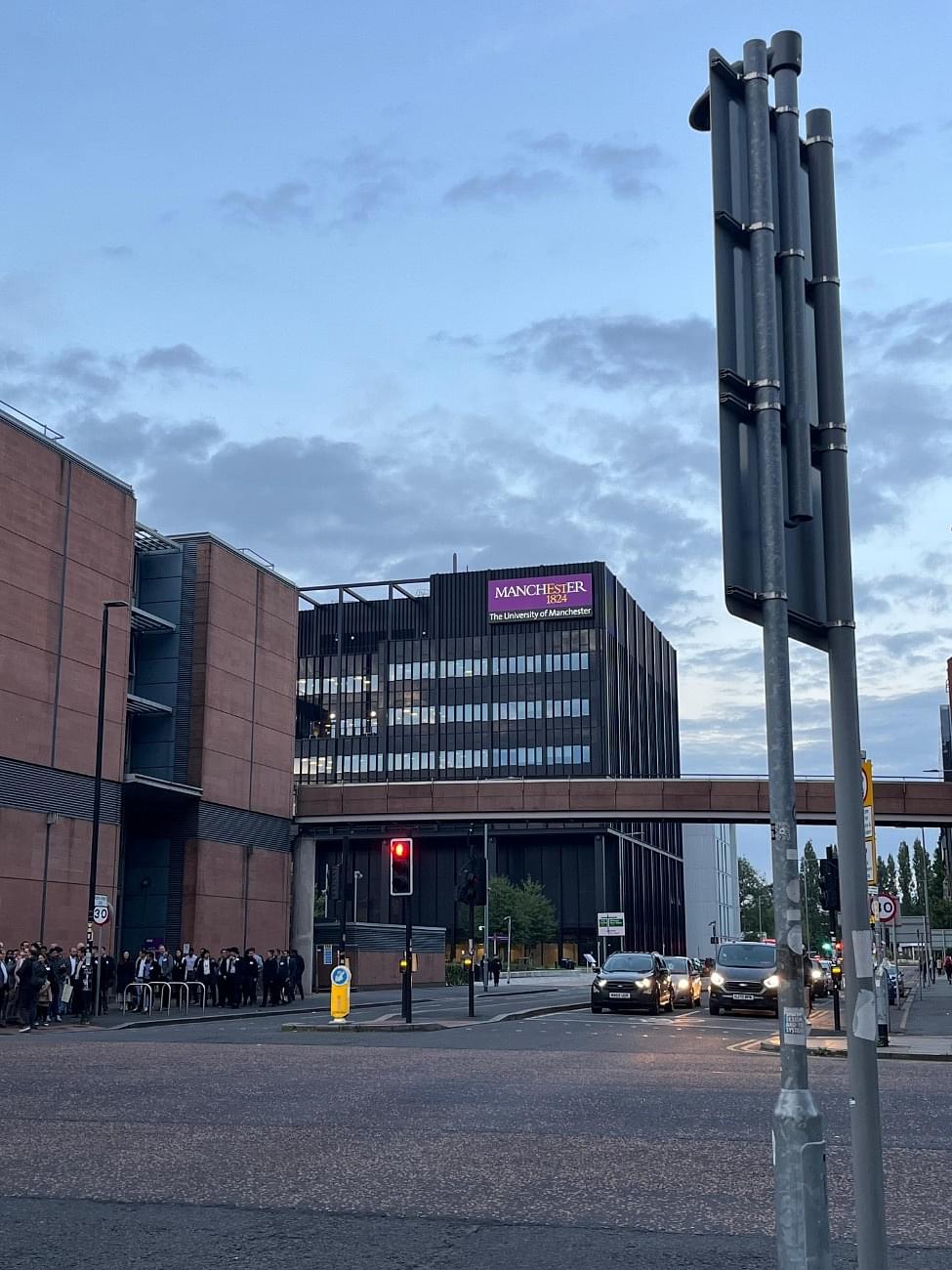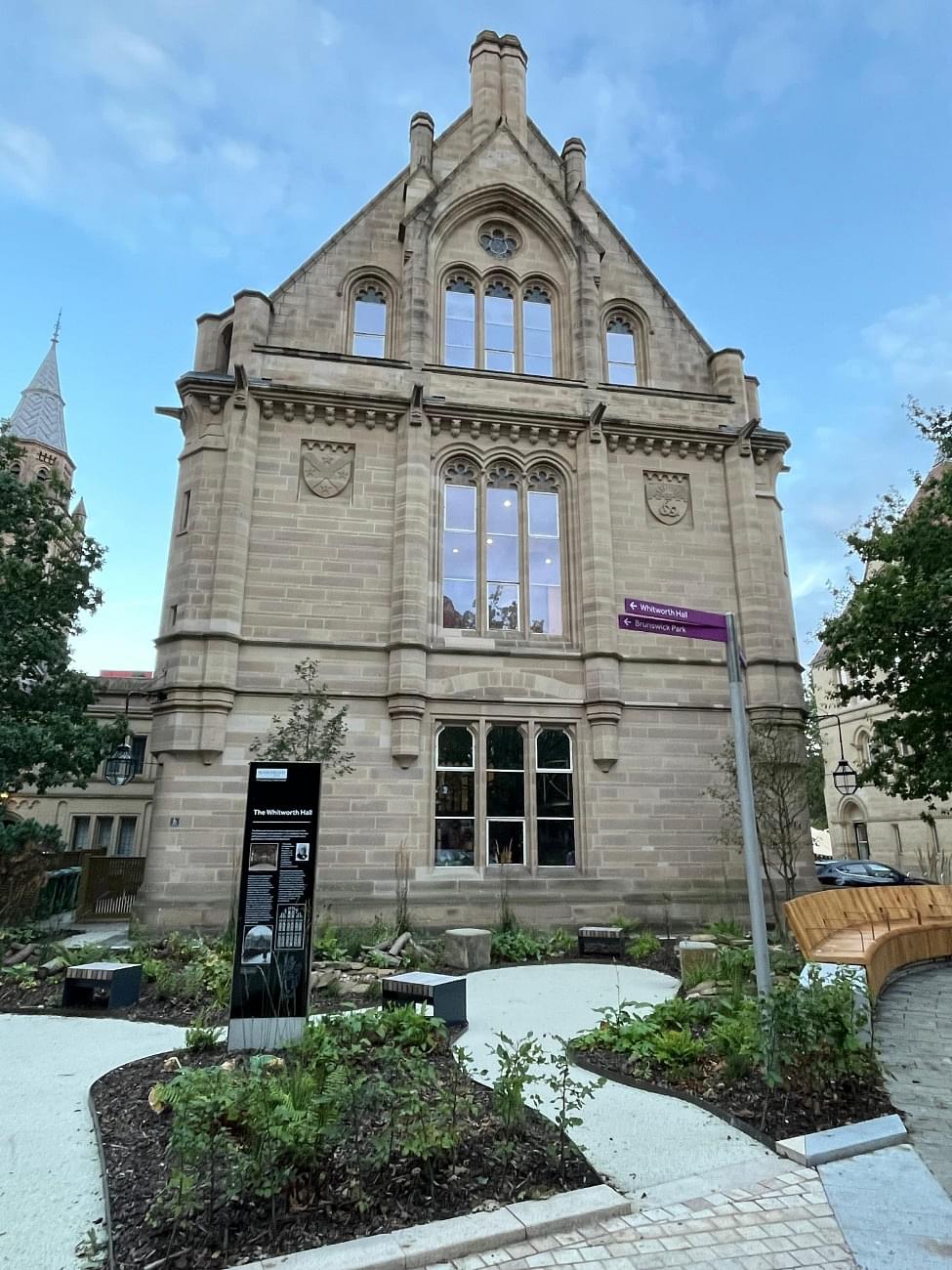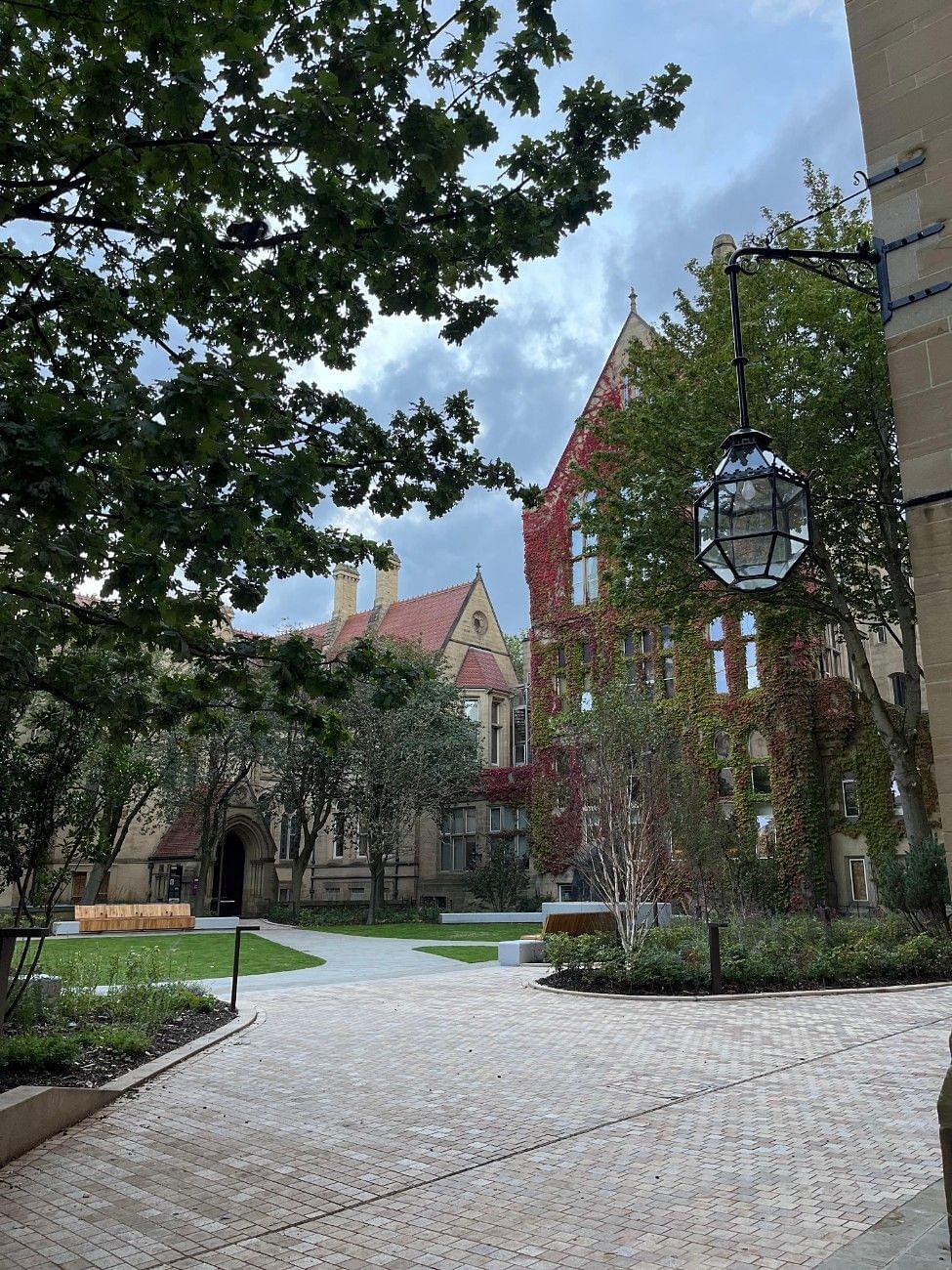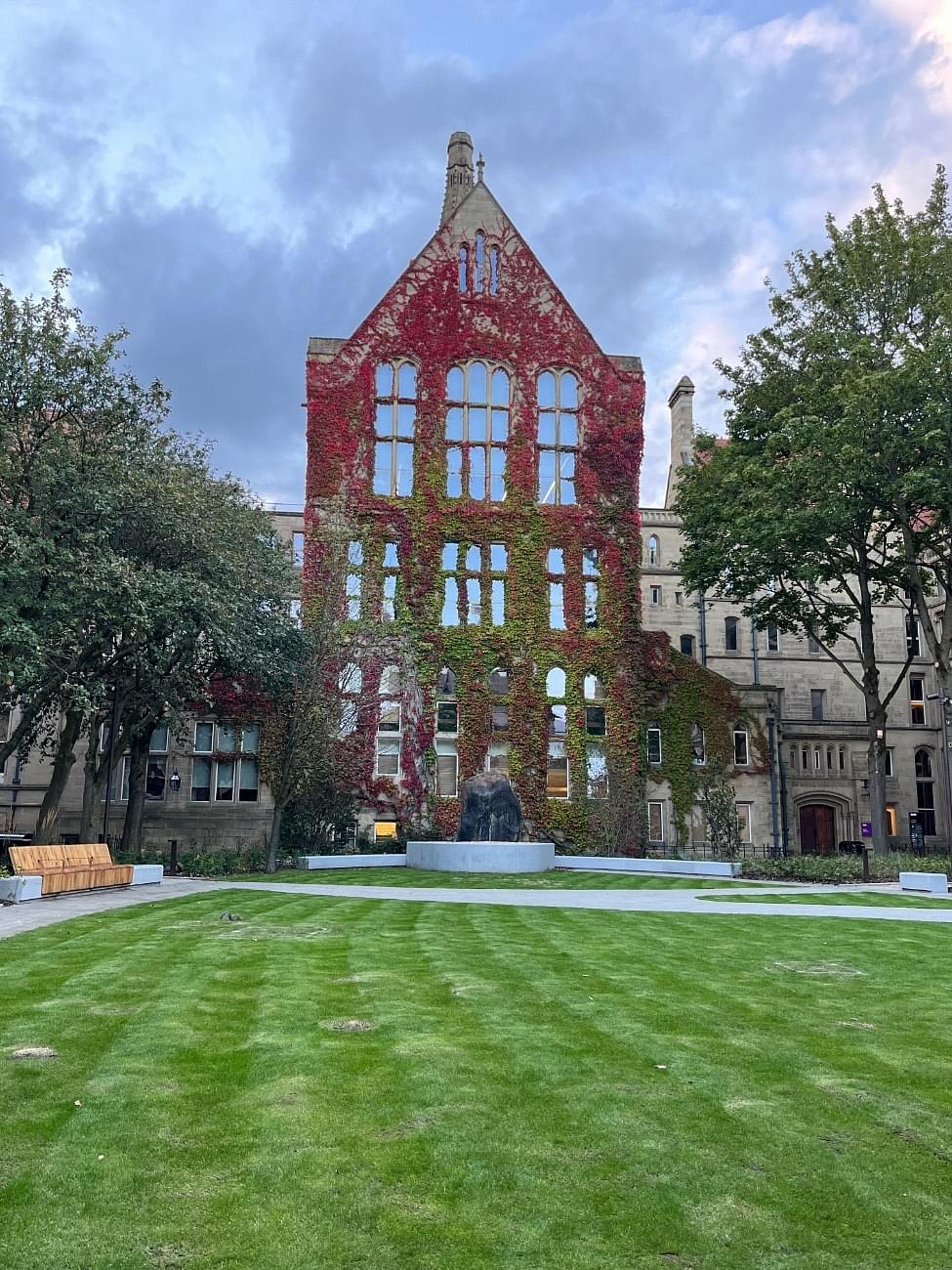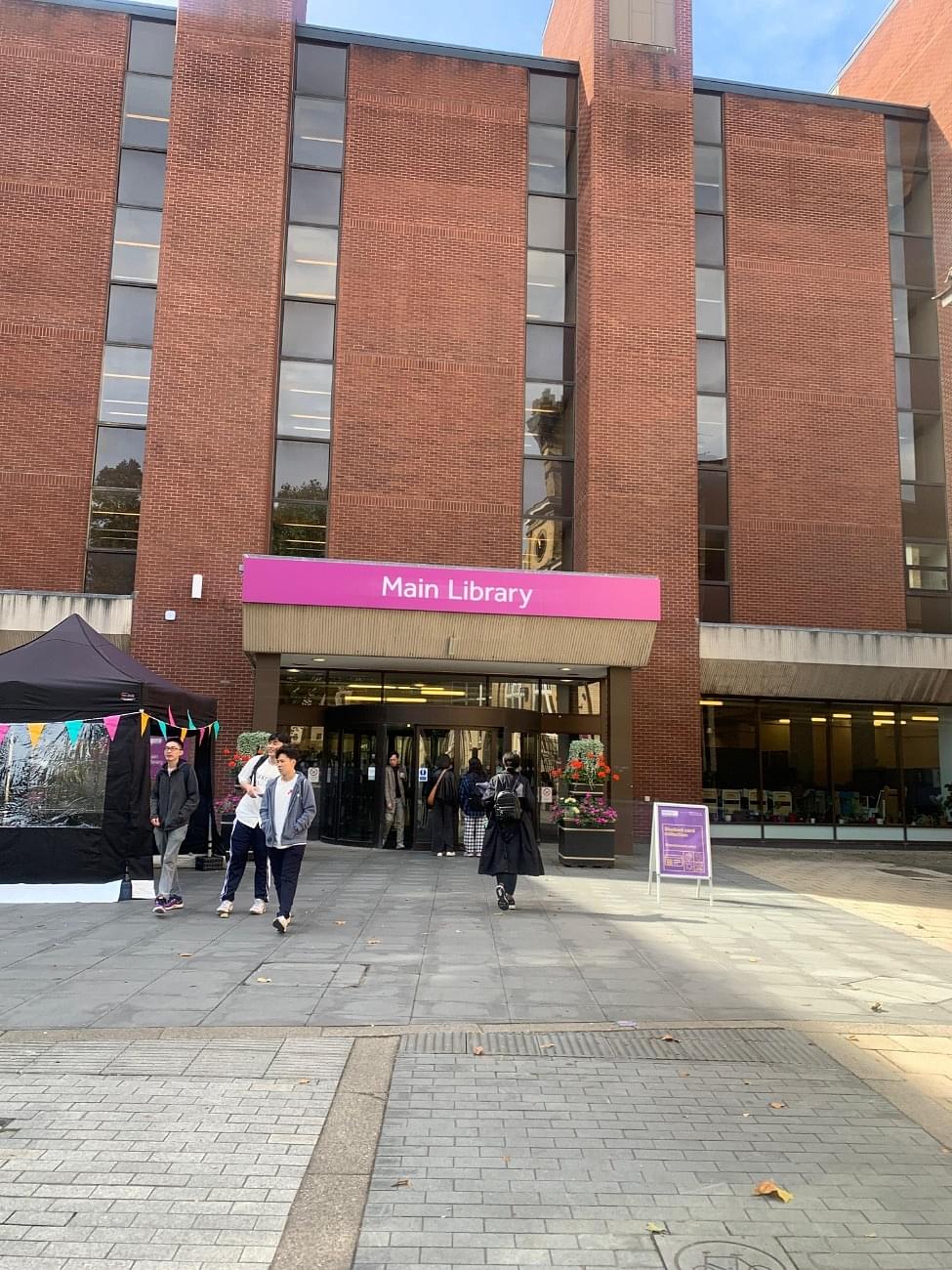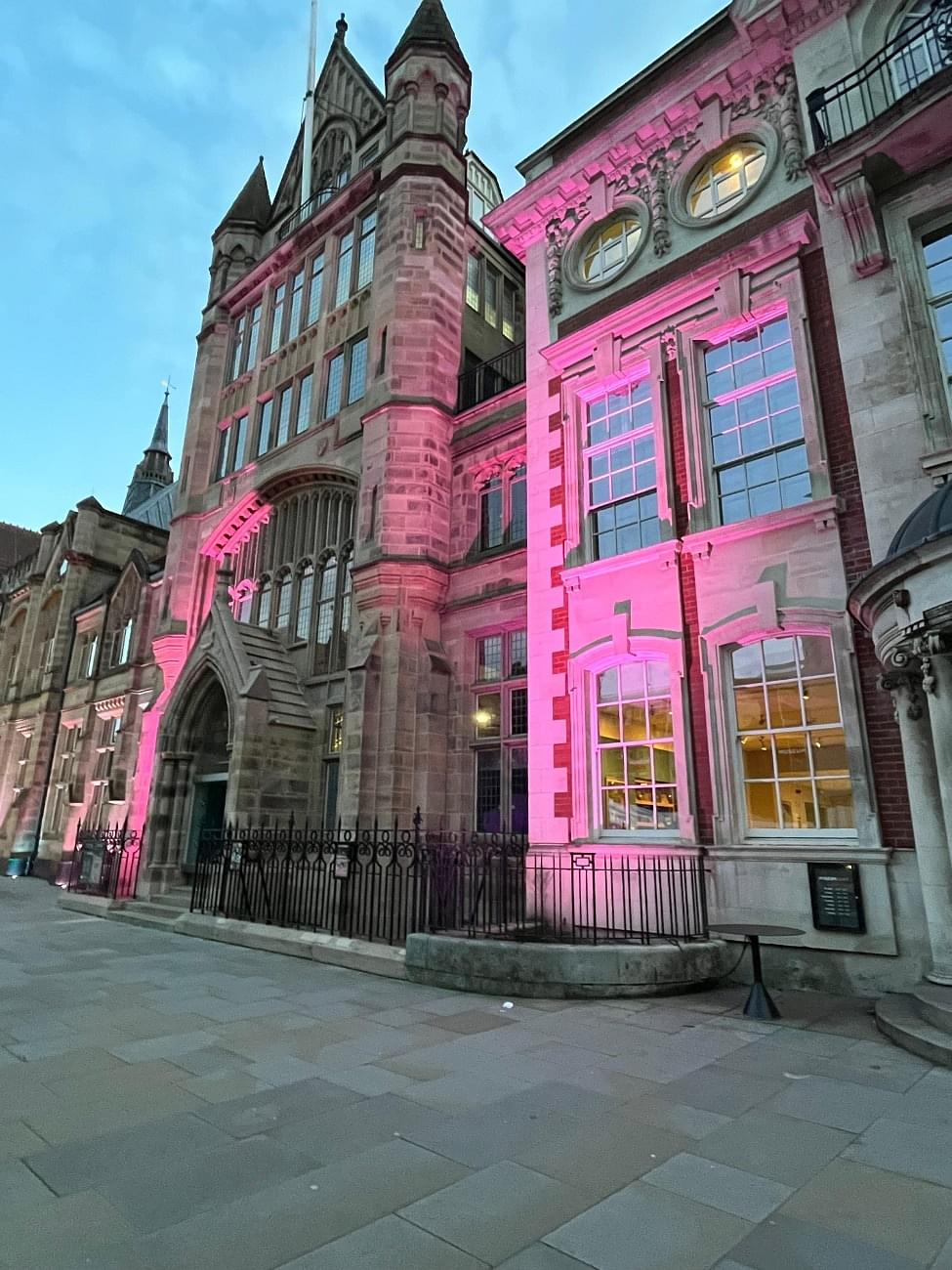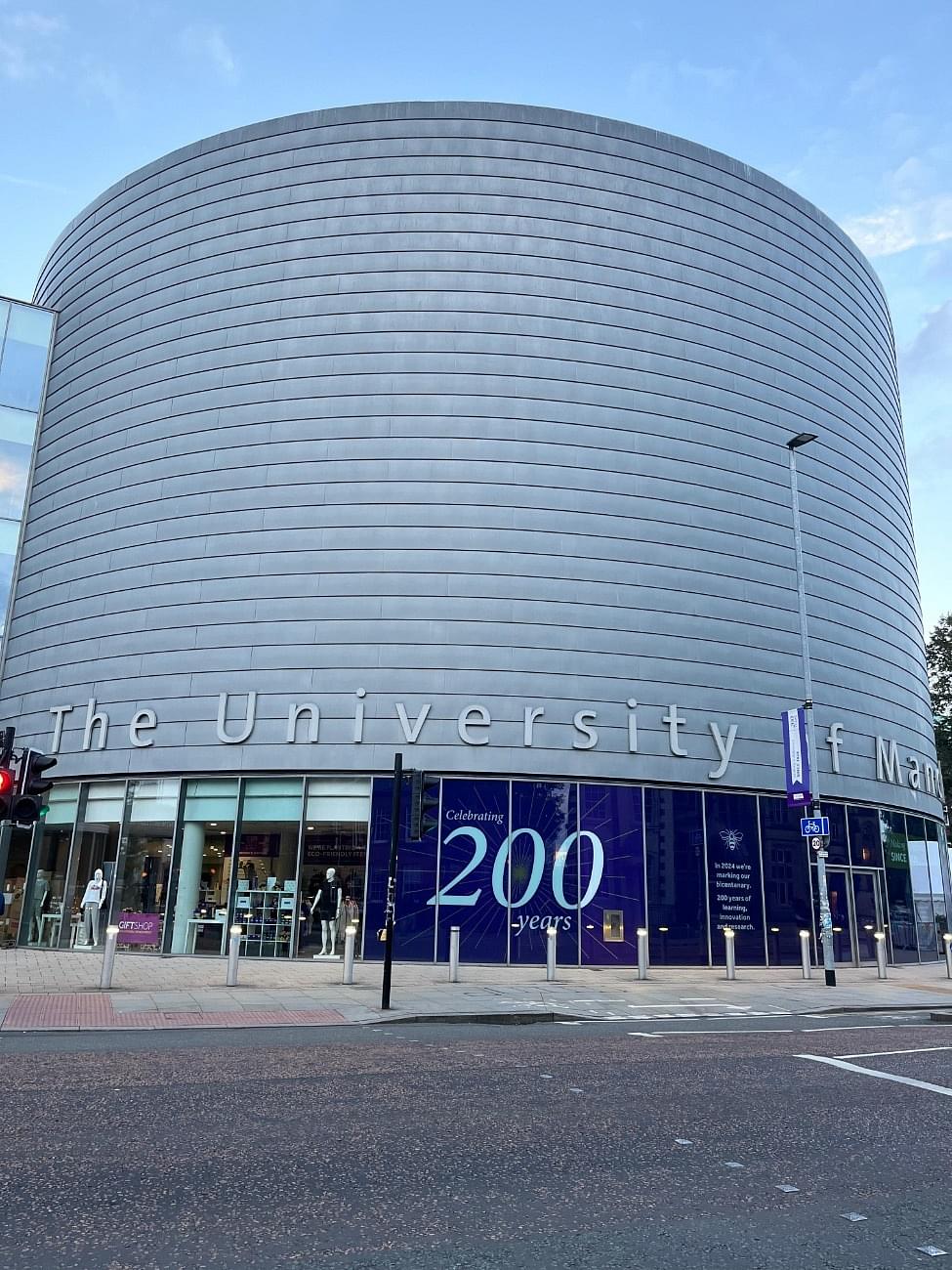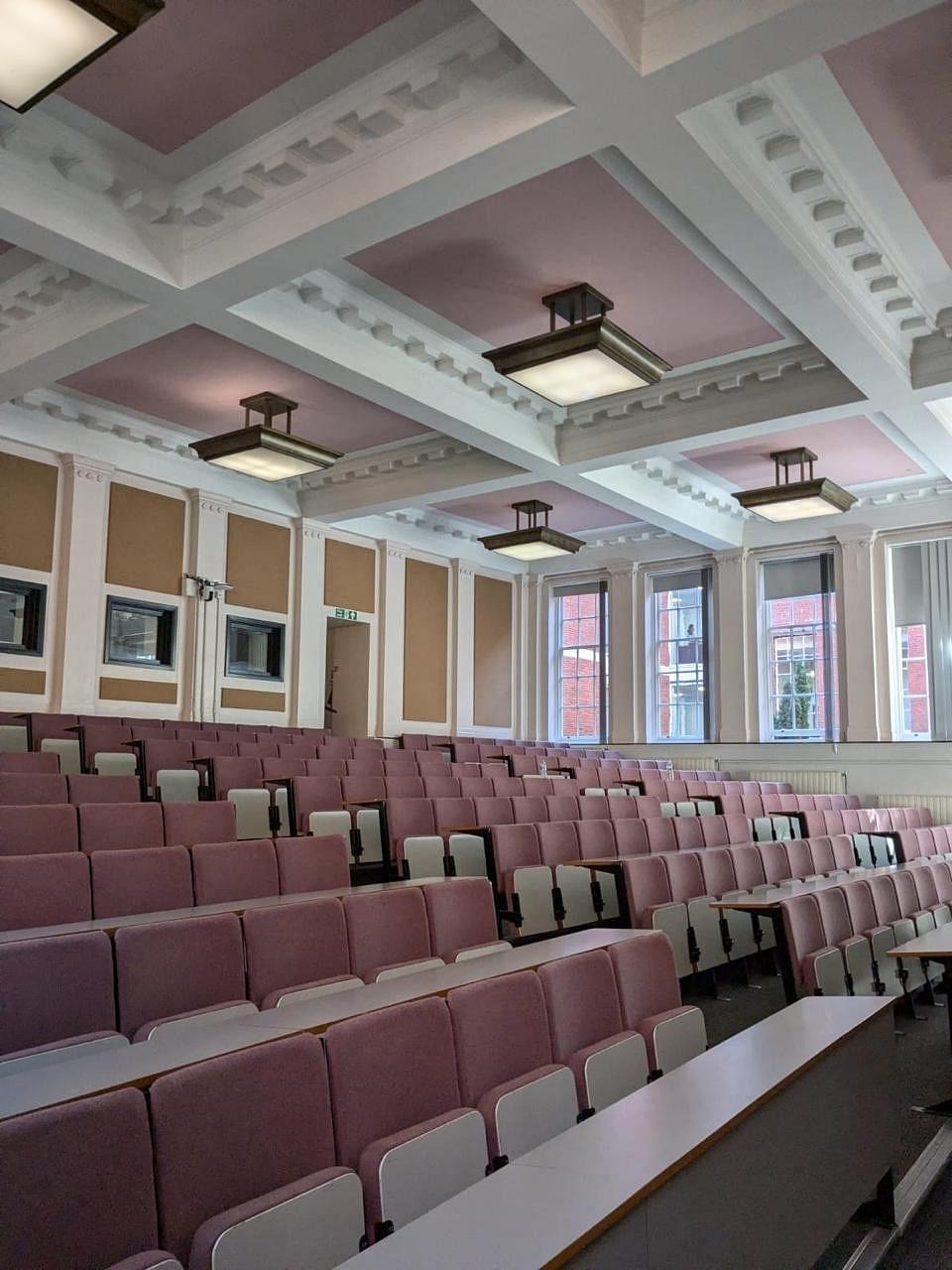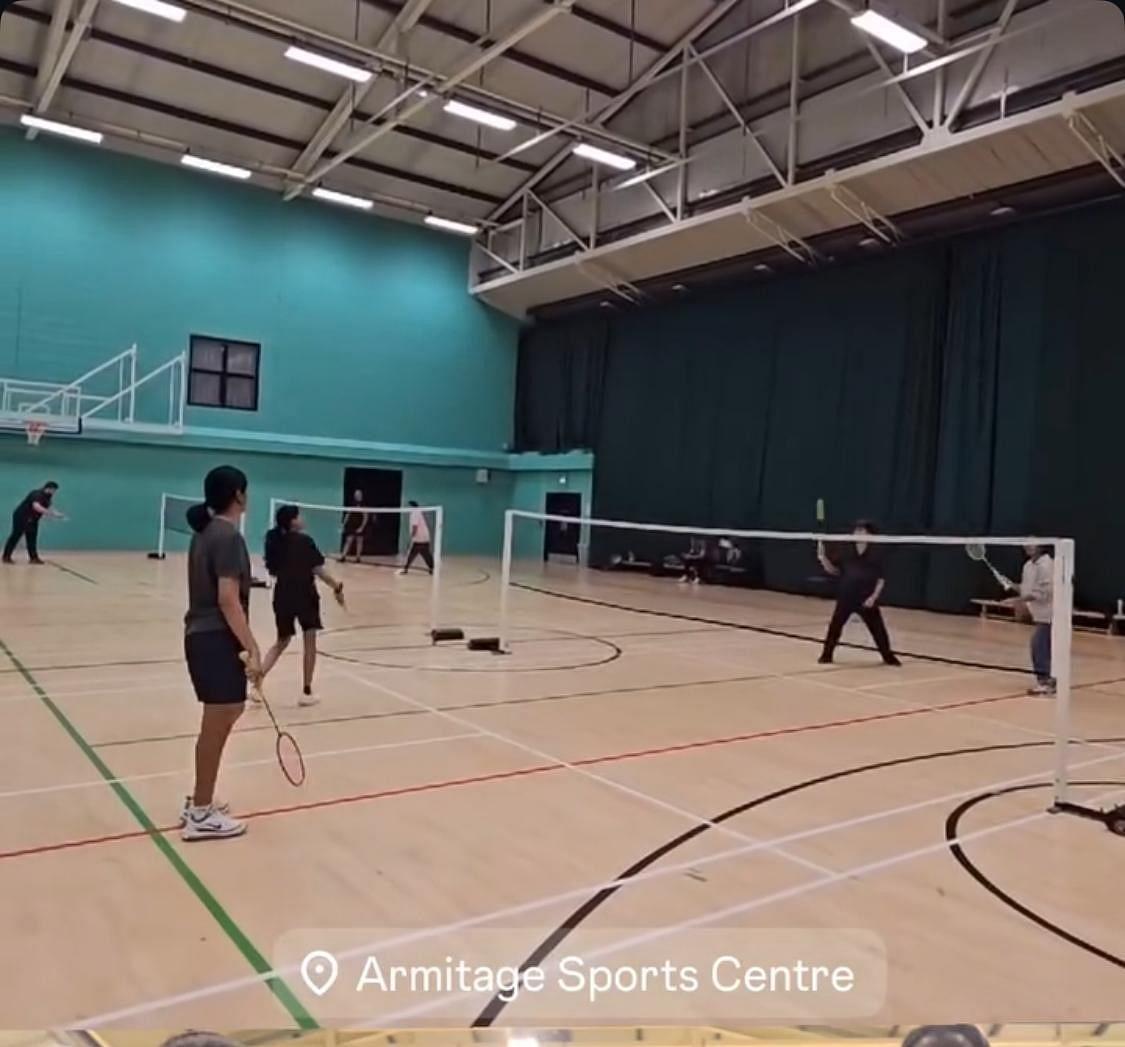What Students Say
Likes
- The campus and infrastructure: It is a vastly spread campus with ample study rooms, labs, eateries and green spaces.
- Ease of communication with faculty
- The accommodation
Dislikes
- Rigorous course: Since the course is rolled into one year, it can get difficult to keep pace with the syllabus.
- A few accommodations are poorly managed.
- Scholarships getting over pretty quickly.
Course Curriculum
- It was definitely a rigorous and challenging course because it is Data Science and it requires both theoretical and practical knowledge. So we had theory classes as well as practical lab sessions. The examinations consisted of written theory papers for 2 subjects and the rest were assignments and assessments-based. It could slightly lean towards being more theoretical in the 2nd semester. Students from non-technical backgrounds, like myself, may find it more difficult than others. The average number of students in my class is 80+. Indians account for about 20 in number. The minimum number of classes scheduled in a day will be 1 or 2 depending on the subject structure, with the maximum number of classes in a day going up to 3. But again, this depends on the elective courses chosen by students. Sometimes there could also be break days with no classes scheduled for the day. The class timings start from 9am in the morning and if there are many classes/lab sessions in a day, it could end by 6pm. But I personally never had a class end beyond 4.30pm.
- The positive aspects of my course were definitely the knowledge gained as a beginner in coding and the range of topics covered by the course, including understanding databases, statistics, machine learning, python, Simulation, data environments, etc. The faculty is supportive and approachable at any time.
- One of the negative aspects I noticed would be the lack of individual attention due to class strength. The other aspect is the percentage segregation of marks weightage between individual and group assignments. Sometimes both have the same weightage, whereas a group should have more than an individual because it usually involves a lot of work.
Admission Experience
-
I applied at the following colleges in the UK:
- University of Birmingham - In process, did not get a result.
- University of Manchester - Admitted (Received confirmed admission)
- University of Liverpool - In process, did not get a result.
- University of Edinburgh - In process, did not get a result.
- Queen Mary University of London - Received offer of admission.
- I applied at the following colleges in Australia:
- University of Melbourne - In process, did not get a result.
- University of Sydney - Filled application form but could not proceed with further documentation since the university wanted a minimum ITR of parents and my parents did not meet the ITR threshold.
- I applied at the following college in Canada:
- University of Toronto - Rejected. Did not meet GMAT score cutoff.
-
I choose the University of Manchester (UoM) over Queen Mary University of London due to the following factors:
- The QS ranking of UoM is higher than Queen Mary.
- The accommodation and living costs are cheaper in Manchester when compared to London.
- The course I wanted (MSc Data Science) was at UoM. Hence, UoM was my obvious first choice.
- I believe every course has its own admission process. But my course only screened my past education and work experience records, plus my IELTS score and offered me admission. The minimum score eligibility for IELTS was 6.5 overall, with each component not less than 6.0. The basic eligibility criteria are a good IELTS score, proven academic and experience records and a good reason for applying to the specific course.
- The overall experience was absolutely easy. We had sessions with the international admission team, who would answer all our queries. There were no challenges. The process was very smooth.
- I applied for the Fall (Sept) intake, as I wanted to join college asap. The September intake is when most students are incoming so it felt better in terms of finding a good cohort and it aligns well with the calendar worldwide. Most courses, especially mine, began only in September; hence, it was a major factor why I chose this intake. The admission process did not take much time, to be honest. It took me less than a week to receive a conditional offer of acceptance and once I fulfilled the IELTS conditions, it took a couple of days to receive the unconditional offer letter. I applied in June 2024 and was done with admission in the same month, after which the visa process began.
Faculty
- With a core faculty for main modules being 8-10, and a batch size of around 100, it means 1 faculty per 10 students, which is relatively low. Therefore, lectures are usually one-sided and not that interactive but quite a bit of engagement and individual attention happens at the lab sessions because teaching assistants are also present for assistance. During the dissertation period we are assigned a faculty member as supervisor, which is very helpful.
- The teaching methodology involves the faculty uploading pre-class videos,, which we are expected to watch for basic concept understanding. Concepts are explained in more detail in class. The lecture slides and the lecture recording are also uploaded. But this is not sufficient to secure a job in the field because a lot of self-study and skill enhancement activities, like participating in hackathons, side projects, GitHub portfolios, etc., have to be done on a personal level.
- The faculty members do not assist in jobs or references. Occasionally a job or PHD opportunity is sent via email but no reference assistance is provided. Whereas the university has a CareerConnect portal in which students can look for job opportunities.
- Prof. Tom Carell was a standout faculty member in my opinion because of the simple reason that I liked the way he taught. The pre-class videos had a lot of effort, which was clearly visible. They were simple to understand, the lectures were quite engaging and the assignment was also very well draughted by the professor. We had fun working on the assignment for the module taught by this professor.
Campus Life
- My university has one campus only, which is on Oxford Road, Manchester. The facilities available are a library, study rooms, a dance studio, a wellness center, a student union with cafes, a bar, a salon, a food court, a gym and sports facilities, medical services, computer labs, and science and engineering labs. The student union hosts multiple events throughout the year. The most popular ones are Welcome week - dance classes, bingo lingo, Oktoberfest, art, wall hanging making, arcade night, etc.
- International society events: city day trips, Holi, Diwali, Eid, Chinese New Year celebrations, etc. The university has all the clubs and societies that you can think of. If you have a hobby/interest, you name it and there is a club! All the clubs organize events throughout the year pertaining to the nature of their club. For example, the sports club will host sporticipate sessions where you can participate in a sport for free.
Part Time Jobs
-
The on-campus part-time opportunities are
- Teaching Assistant (TA): PhD students usually get this role. Very few MSc students occasionally get this.
- Research assistant (RA): There are limited roles. Again, very few master's students get it. These roles are competitive and require prior experience in the research field.
- These positions pay the minimum wage (11£) and can slightly go up to the range (13£ - 15£), which can vary by role type and hours.
- But the student union has various roles, which mostly undergraduate students obtain but quite a few postgraduate students also obtain like cafe staff, library staff, IT helpdesk, student ambassadors, and event helpers, such as for welcome week.
- The off-campus (most available) opportunities are in the following categories:
- Retail & Hospitality: Sainsbury, Lidl, Tesco, Morrisons, Superdrug, Boots, Co-op, Nando’s, Costa, bars and restaurants.
- Delivery & Warehouse: Eats, Amazon, Deliveroo, Spencers, Decathlon, etc.
- Teaching: MyTutor or Superprof, primary schools or community service schools/colleges.
- All these roles in branded UK companies pay the minimum wage (11£/12£) and can vary from type of work to the hours worked. Usually the non-british restaurants tend to pay a tad less when compared to british brands.
- After speaking to a lot of students, I have come to understand that off-campus part-time jobs are easy to secure when compared to on-campus jobs, especially for international students. An international student on a student visa can work up to 20 hours per week in term time.
- Most Indian students prefer non-technical part-time work, which typically includes working in retail & hospitality, because they are easier to obtain. The minimum earning is £11 per hour and can range up to £15. Securing part-time jobs during the off-season is very difficult, as the companies stop hiring due to decreased footfall. But during the spring season when there are increased sales, it is moderately easy to secure part-time. Typically for retail and hospitality, which aren't online, the application involves visiting the shops and submitting CVs and then getting called for a demo/interview. For brands that have their careers site online, we can submit a CV and apply online and then get called for interviews. We need to prepare a UK style CV and ensure we have the National Insurance Number ready, which is very important to work here.
Placement
-
The full-time job opportunities available after completing my course are
- Data Analyst/Business Analyst, Data Scientist, Analytics Consultant, Product/Data Associate, Machine Learning Engineer, Risk Analyst/Marketing Analyst, Graduate Data Associate and more in the management field. Around 60-75% of graduating students secure jobs within 6 months of completing course.
- The job market here is highly competitive at the moment so students with prior relevant work experience (2 years or more) tend to find jobs faster then ones with no prior relevant experience. Students with networking skills and LinkedIn presence with a well prepared CV have an edge in securing jobs quicker. The salary range for entry level positions start at 25000£ and can go up-to 40000£ depending on the entry level and prior experience. Students with prior experience of 7+ years can also earn above 50000£.
- Typically there is no campus recruitment in the UK so students find jobs in the following ways:
- Online job portals like LinkedIn, Indeed, Glassdoor etc.
- Graduate Schemes in companies like Barclays, HSBC, NatWest, Capgemini, etc.
- Networking in university career events, networking with LinkedIn connections and alumni.
- Direct applications on company career portals like Tesco, Amazon, Deloitte, American Express etc.
- Internship: A few students intern with companies during their dissertation period and sometimes that may convert into full time roles.
- Recruitment agencies can also help students in securing full-time work but those are mostly contractual.
- The alumni that I have spoken to from my course have been placed as Data Management/AI professionals in Bloomberg, AQA, Amazon, Tunneys consulting, Capgemini, Zola Analytics, THG, KPMG, Barclays, Lloyds, etc.
Accommodation
- I opted for On-campus accommodation and I loved my flat. A form is sent out to students from the university itself where we have to give our top 5 preferences for accommodation and the university will allot one at random. I luckily got my first preference. It was just a 5-minute walk to the library and about a 7-10 minute walk to the main lecture buildings.
- The monthly rent was about 540 GBP which is the cheapest on campus. I have a separate bedroom to myself. The kitchen, toilet and shower rooms are shared common spaces and these spaces are cleaned by the cleaning staff twice a week. There are an iron box, kettle, fridge, oven, microwave and vacuum available in the flat. I personally did not encounter any challenges while finding or securing my accommodation because it is the one I wanted.
- I stay in Whitworth Park Leamington House and this house is the most newly furnished one in this accommodation community. it is the cheapest when compared to other one-campus accommodations, and it is very close to lecture halls. I have seen many Indians choose the accommodation I have chosen, purely because of the above-mentioned reasons. But a few students go for private accommodations or a little far off campus if they have more funds with them.
- If your budget is small and you want one close to campus and do not mind a shared toilet/bathroom, then I definitely recommend Whitworth Park, but only certain flats are good (a few very old flats are in bad condition), so please check pictures before giving this one as a preference.
Exams
- IELTS and TOEFL are accepted. For certain courses like MBAs, GMAT is asked but for my course I did not have to provide a GMAT score, although I had a score. The necessary documents are 10th, 12th and undergraduate mark cards/reports, a CV, and Statement of Purpose. Interview was not part of my application process, or at least I wasn't asked to give an interview.
Fees
- The tuition fee for my course is 36000 GBP. My accommodation fees came to around 7000 GBP for the year. The fees can be paid in a lump sum annually but I chose to pay them in 3 installments, which is an allowed option.
- An estimate of monthly living expenses would come to around 350 excluding rent. It varies from person to person depending on the amount of travelling one wants to do using public transport and the amount of leisurely activities one engages in.
Scholarship
- I did not receive a scholarship since I applied late and the scholarship deadlines had lapsed by then. My batchmates received the Bicentenary scholarship amounting to 8000 GBP. There are many scholarships available for undergraduate and postgraduate students, but I am unfortunately not sure of the statistics and the typical award amount. It could start from 2000 GBP.


